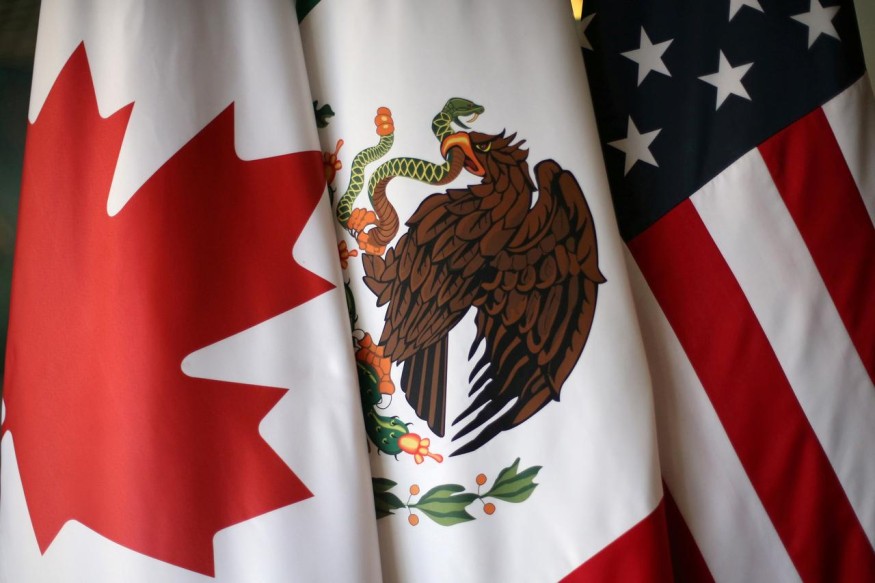U.S. Trade Representatives to Fly to Mexico to Finalize USMCA Deal

Trade agreements of different countries especially those authored by the U.S. government, have been one of the most trending discussions in politics.
It can be recalled that Trump recently reversed the agreement with Argentina and Brazil and planned to impose tariffs on metal and steel. Meanwhile, another trade agreement with China is now on going that would allow America and China to reduce the tariffs on goods at the same price and at the same time.
America is known for different trade agreements with other countries that aim to benefit both countries economically and politically. On Monday, Mexico and U.S. Diplomats closed in on a deal for labor-related changes.
Moreover, Robert Lighthizer and Jared Kusher are both set to fly to Mexico to finalize the trade and the details of the agreement. According to a reliable source, the proposed deal has already been sent to the office of House of Representatives Speaker Nancy Pelosi who will decide as to when to bring the U.S.-Mexico-Canada (USMCA) agreement to a vote.
In a report from MSN News, a senior Democratic aide said that there was not yet an agreement announced in the house, but assured that if there are they will be studying the proposal.
A Mexican official also said that they invited Canada's Deputy Prime Minister Chrystia Freeland concerning the planned visit of U.S. representatives in finalizing the USMCA agreement. However, the spokesperson of Freeland did not give any comments about Mexico's invitation.
It is believed that the USMCA would put an end to the existing 26-year-old North American Free Trade Agreement (NAFTA). The USMCA encompasses $1.2 trillion in annual trade across the continent and is responsible for 12 million U.S. jobs.
However, this UMSCA must first be approved by three countries to assure that each country benefits from this agreement equally. The Democrats in the U.S. are not yet sure if they will approve the said proposal because it would strengthen only the political power and influence of Republican President Donald Trump. Economically it benefits each country, but politically it does not benefit the Democrats.
Moreover, there is an urgent need to approve this agreement the soonest as possible. If this agreement is set to be approved in 2020 it would be difficult for both countries to convene and have it approved because they will be pre-occupied with the upcoming 2020 Presidential elections and including the full swing of Trump's impeachment inquiry.
The negotiation to replace NAFTA started in August 2017, that is why many are reluctant on Capitol Hill to declare that a deal had been struck. Meanwhile, it can also be remembered that there are many deals that were very imminent, but were only delayed due to some last-minute hitches.
In 2018, the leaders of Mexico, the U.S. and Canada had initially signed the USMCA agreement. However, the Democrats who have control in the House have pressed for more changes especially for biologic drugs that they believed that this means a higher drug price.
A Democratic House aide said in an interview that Pelosi is scheduled to meet the senior House Democrats on Monday evening who ave been working on the changes of the agreement or pact. Just last week, Lighthizer said that a new demand was added in the agreement and this concerns about the metal and aluminum that is melted and poured in North America.
In the NAFTA it was stated that 70 percent of the metal and aluminum in the North American cars come from the region. However, it did not specify its production method and this opened the door to semi-finished metals from China and other countries.
During Trump's campaign in 2016, he blamed NAFTA for the loss of millions of American factory jobs. Since then, he said that he will end NAFTA if there is a need to do it. On Monday, Trump said "A lot of strides have been made over the last 24 hours and I'm hearing very good things. I'm hearing from unions and others that it's looking good."
AFL-CIO President Richard Trumka spoke with Trump about the USMCA and Trumka was assured that once the agreement is approved by three countries, Mexican workers will benefit from this because they will be pushing for stronger labor enforcement and they will also be allowed to unionize.
Subscribe to Latin Post!
Sign up for our free newsletter for the Latest coverage!
© 2026 Latin Post. All rights reserved. Do not reproduce without permission.














